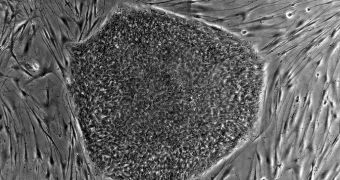Progress and breakthrough in the field of stem cell research is currently being stifled by the multitude of patents and privatizations of stem cell lines, data and pioneering technologies, a new analysis says. The only way to ensure we can move forward in this regard is to stop this effect, experts believe.
This is the conclusion a team of scholars led by a Johns Hopkins bioethicist came to after looking at the way things are done in stem cells research from a legal standpoint. The team's opinion is published in an op-ed appearing in the February 10 issue of the top journal Science.
What the group is saying is that the entire scientific community should come together on this, and work out a way of preventing patenting and privatization from stifling stem cell studies.
The main obstacles in doing so, he analysts reveal, is the inherent ambiguity of a number of fundamental distinctions that need to be made in the fields of ethics, law, and common practice.
First off, there needs to be a clear distinction between what is and what is not in the public domain, explains Johns Hopkins (JHU) Berman Institute of Bioethics expert Debra Mathews, PhD.
At this point in time, that distinction is beginning to get blurred by all the failures authorities registered in managing how private and public organizations and companies managed patent applications.
“Pervasive taking of intellectual property rights has resulted in a complex and confusing patchwork of ownership and control in the field of stem cell science,” Mathews explains.
“While intellectual property provides a critical incentive to take basic scientific discoveries and translate them into marketable products, transparency about such property is equally critical,” she adds.
Matthews holds an appointment as an assistant director for science programs at the Berman Institute. The op-ed she published was also co-authored by a number of other experts.
“Following trends seen elsewhere in the sciences, stem cell researchers – and the companies and universities for which they work – are increasingly taking private ownership of early-stage technologies, cell lines, genes and associated data,” the authors write.
Co-authors include David Winickoff (University of California in Berkeley associate professor of bioethics and society), Gregory Graff (Colorado State University intellectual property rights expert) and Krishanu Saha (Whitehead Institute of Biomedical Research stem cell expert).
“The lack of transparency about who owns what intellectual property rights can hamper stem cell research and development, and so can the resulting ambiguity of the distinction between what is private property and what is in the public domain,” Graff concludes.

 14 DAY TRIAL //
14 DAY TRIAL //